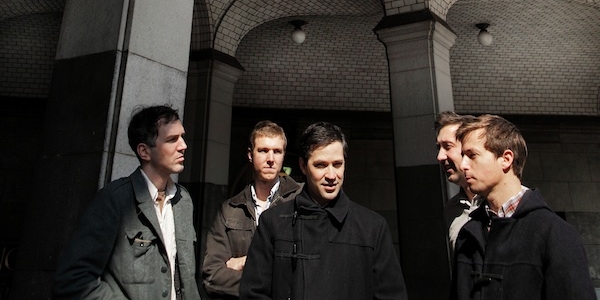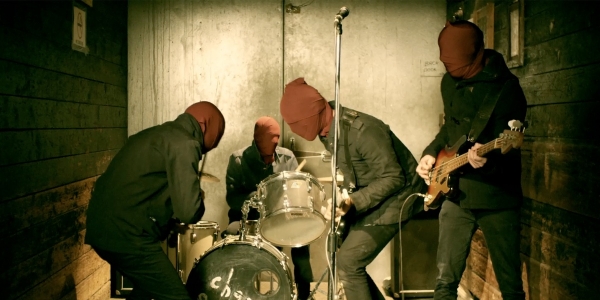The city of Lisbon itself has been quoted as inspiration for the album, yet you actually wrote it entirely at home. How, then, did Lisbon influence what would become, well, Lisbon?
We went there [the city], and at the time it was an interesting place for us. It seemed like an exotic city and a place we never expected we’d ever be able to go, any of us, and to be there playing shows that were really great for us, we really felt like we made a connection with people there. We named a song Lisbon just by chance, and then as we were coming together to make the record as a whole, it was kind of a nice title for the whole thing, and the whole exotic, strange quality of the city related to how we felt of the songs. But it wasn’t like a cause and effect thing. I don’t really remember when we wrote the songs. We just sort of named the song Lisbon based on a vibe. It had this feel to it. That’s how a lot of our stuff comes together. You just kind of go with it.
Musically, the album sounds a lot more upbeat than your earlier work, but underneath it all the lyrics are just as dark as ever. Was there something conscious about the contrast of those elements?
We were definitely trying to make something more upbeat at times. It was something we were trying to do because people always say we’re a little dark. But songs are usually about sad things – at least the music that I listen to is. But in the end, yeah, I feel like they’re upbeat. There’s the odd grim line or two, but that’s just because it feels like it should have that. It’s not like we’re all a bunch of sour guys that want to slit our wrists. So I think it’s a pretty upbeat record, yeah.
Elvis has also been quoted as an influence, but he’s certainly not the first person that comes to mind when you listen to the album.
It was more something for us to use to get to a certain place. You don’t want your songs to sound like somebody else’s music. But you use somebody else’s things to get to a spot where things make sense for you. So it’s not like we actually sound like Elvis, because you probably don’t want your stuff to sound like that. It’s more a matter of trying to use something to get to a different place.
In trying to capture the feel of those old Sun Records, did you source out any particular gear?
No, we just always use the same stuff. We’ve always used the same kind of gear, and I think it’s because a lot of the bands we grew up liking used all that sort of stuff. And then you end up using older equipment and you realise it sounds a lot better. There’s not much you can do about it. Having said that, it’s not like a principle or conservative stance, it’s just a matter of trying to find an instrument you really love and that you’re excited to play and sounds good. But for now, I’m using a sampler, and I sample a lot of the old combo organs and stuff that I have, because I get tired of fixing them. That’s sort of been fun, because it’s a totally different thing. You can combine things and think about things in a different way, like all the tones and everything. But it still pretty much sounds like a Farfisa. It sounds like a vacuum cleaner running, no matter what you do! But everything I use on the sampler is just stuff I have. I’ve just taken to sampling pianos and organs that I have. For instance, if we’re going to go to a studio in a couple of weeks, I’ll go and sample, just so I can have it, and then you can mess with it.
So it’s just a matter of practicality then?
Yeah, but it’s also interesting. It sounds sort of better at times. It’s just a different way of thinking about it. It’s an old sampler that RZA used from the Wu-Tang Clan on his first records. I don’t know why I go for out of date technology! But it’s cool, it sounds great – a lot cleaner and more pristine that it does coming out of the old Vox, which is just busted.
BY MITCHEL BROWN







